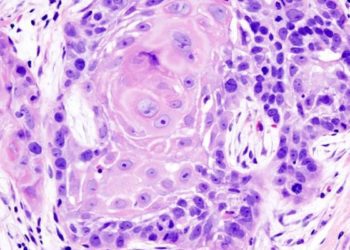Carrier status of an actionable gene is associated with reduced life span in large Icelandic study
1. In this cross-sectional study, having carrier status of actionable genes identified by the American College of Medical Genetics and Genomics (ACMG) was associated with reduced life span compared to non-carrier status.
2. Having carrier status for an actionable cancer gene was associated with a shorter life span by an average of three years compared to the non-carrier status of an actionable cancer gene.
Evidence Rating Level: 2 (Good)
Study Rundown: In 2021, the ACMG published a series of 71 genes designated as actionable for its pathogenic or likely pathogenic cause of monogenic disease for which there are available preventable or therapeutic measures. With the increase in large-scale exome and genome sequencing studies, engaging with prioritization considerations for the return of results to participants has prompted interest in understanding the survival relevance of specific actionable genes for carriers. As a result, this was a large cross-sectional study based in Iceland seeking to evaluate the association between actionable genes as identified by ACMG and life span. Results of the primary analysis found that in general, carriers of actionable genes were associated with a reduced life span compared to noncarriers. Specifically, carriers of actionable genes for cancer were associated with shorter survival, for which a specific Icelandic variant of BRCA2 accounted for 18% of all carriers with a strong association with death and BRCA2 disease. A limitation to acknowledge about this study is that survival is likely overestimated, as the study is unlikely to have captured participants with highly aggressive diseases resulting in premature death. Despite this, this study provided insightful identification of the effect of specific actionable genes on survival for the benefit of systematically working towards consensus on a framework for the return of results to participants within exome and genome sequencing research studies.
Click here to read the study in NEJM
In-Depth [cross-sectional study]: This was a large cross-sectional study within Iceland analyzing genotype-phenotype associations and investigating the relationship between mortality and actionable genes designated by the ACMG version 3.0. The primary outcome of interest was survival, with additional metrics of interest including causes of death within carriers, and association between carrier status of actionable genes and life span. Overall, 57,933 participants with available whole genome sequencing, and 108,348 participants with chip genotyping and imputation were included in the study. Results of the primary analysis found that carrier status of actionable genes was associated with a shorter duration of median survival compared to non-carriers, with an earlier age of early death amongst carriers. Furthermore, those with carrier status for actionable genes within cancer groups demonstrated a shorter survival by three years compared to non-carrier status (84 years for carrier status; 95% Confidence Interval [CI], 82-85 years) compared to 87 years for non-carrier status (95% CI, 87-87). Specifically, the Icelandic variant of the BRCA2 gene was represented by 18% of carriers of all actionable genes across any disease group categories. The strongest association between actionable gene and cause of death was also similarly found in the BRCA2 gene, whereby 22% of those with actionable BRCA2 gene status had BRCA2-related disease. There were no significant differences in survival between carriers and non-carriers for actionable cardiovascular or miscellaneous disease genes. In summary, this study provided evidence that the carrier status of actionable genes is associated with a shorter lifespan compared to non-carrier status.
Image: PD
©2023 2 Minute Medicine, Inc. All rights reserved. No works may be reproduced without expressed written consent from 2 Minute Medicine, Inc. Inquire about licensing here. No article should be construed as medical advice and is not intended as such by the authors or by 2 Minute Medicine, Inc.







